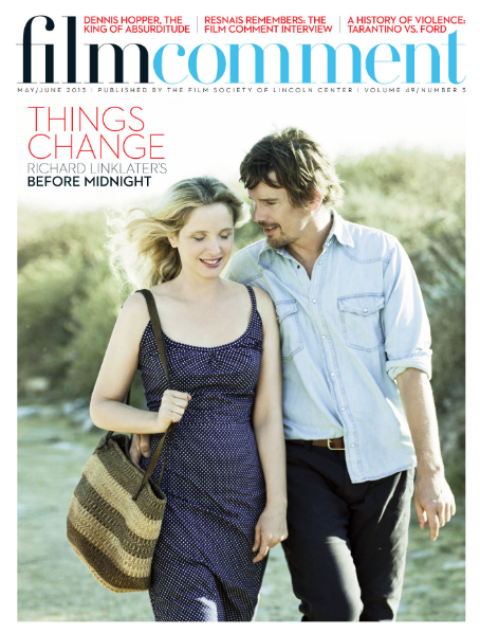
“It gets better, my ass,” a world-weary fag hag quips upon seeing the eponymous Laurence’s bloodied, beaten face after a barroom brawl. This swipe at gay advice columnist Dan Savage’s highly visible awareness campaign appears amid nearly three hours of melodrama interspersed with soaring music video sequences, but comes off as neither glib nor overwrought. As the 41 percent attempted-suicide rate of trans people makes clear, the prejudices confronting trans, homeless gay youth and non-Caucasian gays are more pervasive and entrenched than those faced by their white, upper-middle-class counterparts who live in (or have the economic freedom to move to) gay-friendly metropolitan areas.
Laurence Anyways, Xavier Dolan’s third film, acknowledges the messiness of transgender life, and the sizeable gaps between tolerance, acceptance, and actually going to bed with someone. The film opens with a POV shot of a slow-motion stroll down a Montreal street in which the camera is met with alternately hostile and curious stares. Anatomizing the disconnect between progressive idealist orthodoxy and the realities of day-to-day life, the film tackles the shallowness of broadly defined “gay culture” (parties, fashion, catty wit, sloganeering)—and the shallowness of desire.
Despite proceeding from the premise that the choices people make are largely arbitrary rather than motivated by some greater logic or plan, Laurence Anyways is relatively restrained in emotional terms, all the more so given the arc it describes. At the age of 35, Laurence (Melvil Poupaud), a respected literature professor in a happy, long-term relationship, announces that he has been “stealing the life of the woman [he] was meant to be,” and embarks on the process of transitioning from male to female.

Although family, friends, and co-workers are supportive, cracks open up: his students’ parents successfully petition to get him fired; his lover, Fred (Suzanne Clément), weathers her anger and denial to become a supportive if unfaithful partner, but ultimately leaves him to marry a wealthy lawyer. Now alone, Laurence spends five years writing poems that pine for Fred, and the lovers briefly reunite after the poetry is published as a collection. Yet despite the hollowness of her bourgeois existence, Fred cannot accept Laurence’s “created families” and the isolation of his existence, and leaves for good.
Laurence Anyways has its share of crying fits, screaming fights, and preachy rants (including one in a small-town diner that involves smashing plates), but these sermons are windows on the emotional states of Dolan’s characters rather than soapboxes for the writer-director. And whenever the characters are unable to express themselves, the baroque visuals, which marry Sirkian mise en scène with Eighties MTV aesthetics, do it for them: Fred’s monochromatic living room is flooded with water after she reads Laurence’s book of poems; clothes rain from the sky as the lovers joyously travel to the Isle of Black; Fred’s hair straightens and curls according to her adherence to social norms.
There’s also quite a bit of Fassbinder here: like Elvira/Erwin of In a Year of Thirteen Moons, Laurence looks more like a man with long hair in a dress than a convincing woman; in a scene reminiscent of Ali: Fear Eats the Soul, shortly before making his announcement, Laurence takes shelter from the pouring rain while returning home from work and finds himself surrounded by women and girls; and, of course, there’s that pervasive sense of futility. Despite the excessively pretty packaging, it’s clear that there is no Hallmark resolution for the couple’s problems. Fred loves Laurence, but longs for “a man’s arms”; Laurence needs Fred, but can’t continue being a man (or apologize for his decision to become a woman). They remain true to their desires, because that’s the best they can do.








